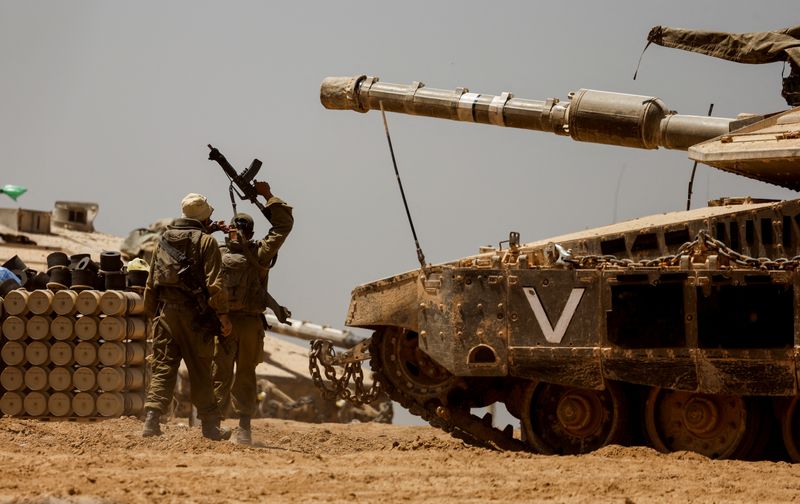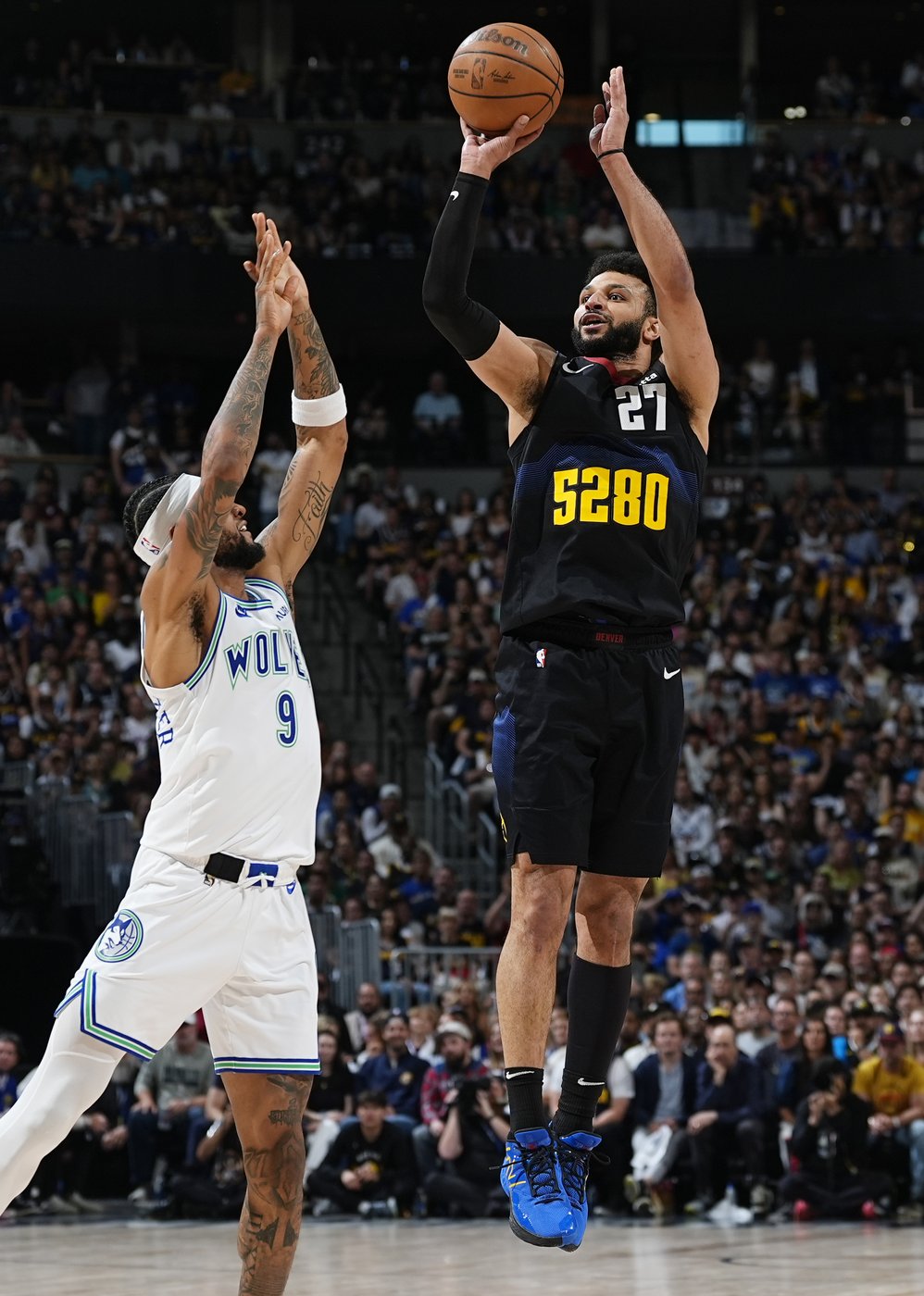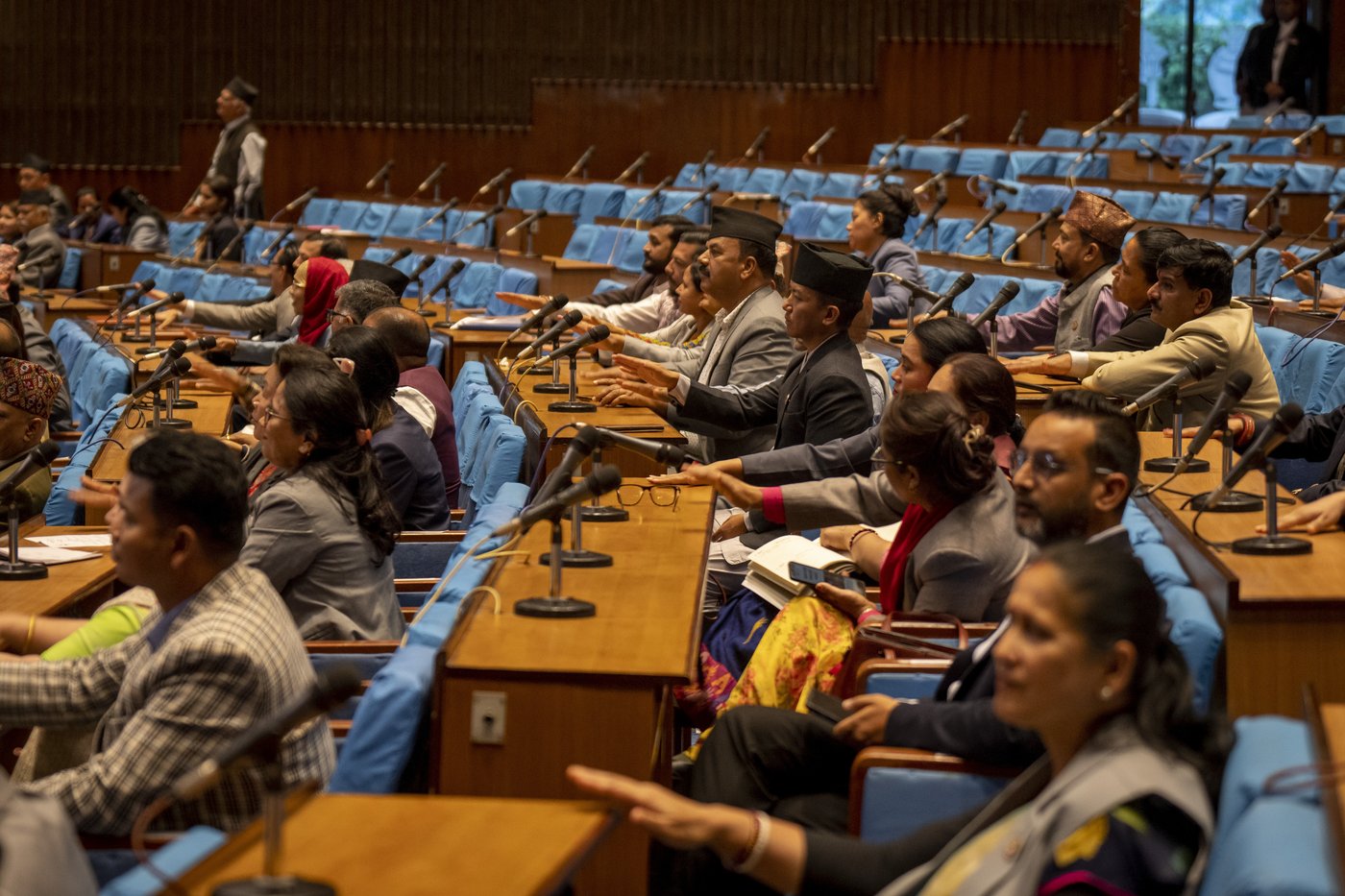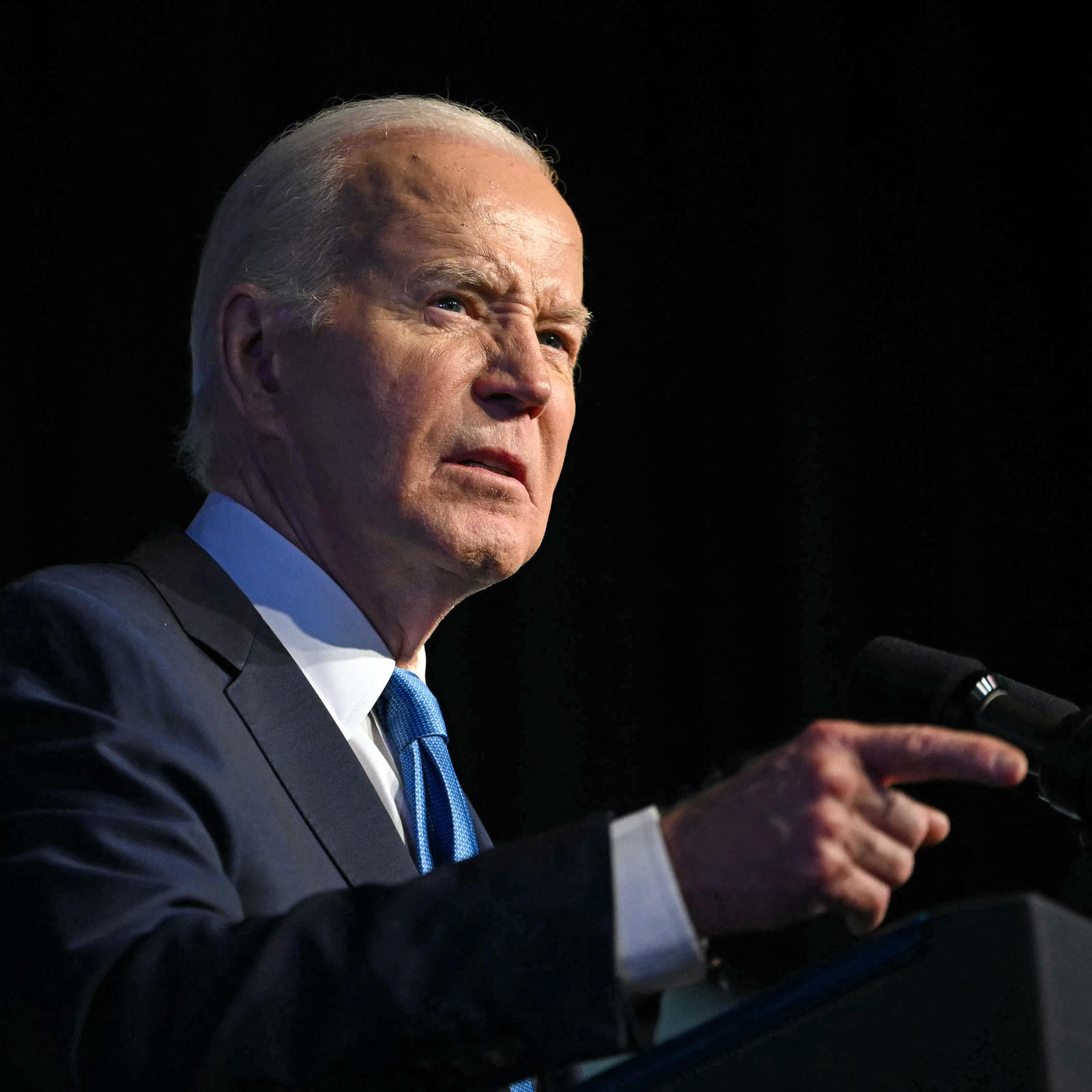
ISRAELI FORCES MASS ON RAFAH'S OUTSKIRTS AS US WARNS A MAJOR ASSAULT COULD HALT ARMS
By Nidal al-Mughrabi, Mohammad Salem and Jarrett Renshaw
CAIRO/RAFAH, Gaza Strip/WASHINGTON (Reuters) - Israeli forces massed tanks and opened fire close to built-up areas of Rafah on Thursday, residents said, after U.S. President Joe Biden vowed to withhold weapons from Israel if its forces launch a major invasion of the southern Gaza city.
As ceasefire talks continued in Cairo, Palestinian militant groups Hamas and Islamic Jihad said their fighters struck Israeli forces on the eastern outskirts of Rafah, firing anti-tank rockets and mortars at Israeli positions.
Residents and medics in Rafah, the only major urban area in Gaza not yet invaded by Israeli ground forces, said Israeli tank fire killed three people and wounded others near a mosque in the eastern neighbourhood of Brazil.
On the city's eastern edge, residents said a helicopter opened fire, while drones hovered above houses in several areas, some close to rooftops.
Israel says Hamas militants are hiding in Rafah, where hundreds of thousands of Palestinians have sought refuge after fleeing combat elsewhere in Gaza, and it needs to eliminate them for its own security.
CIA Director William Burns, back in the Egyptian capital after talks in Jerusalem, resumed meetings on Thursday with mediators trying to secure a ceasefire, two Egyptian security sources said.
Biden, who says Israel has not produced a convincing plan to safeguard civilians in Rafah, issued his starkest warning yet against a full ground invasion.
"I made it clear that if they go into Rafah, ... I'm not supplying the weapons," Biden told CNN in an interview on Wednesday.
AID ROUTE CUT
Israeli tanks seized the Gaza side of the Rafah border crossing with Egypt on Tuesday, cutting off a vital aid route and forcing 80,000 people to flee the city this week, according to the United Nations.
"The toll on these families is unbearable. Nowhere is safe," the U.N. agency for Palestinian refugees said in a post on X.
An Israeli military statement on Gaza operations on Thursday morning did not refer to Rafah.
The United States is by far the biggest supplier of weapons to Israel, and it accelerated deliveries after the Hamas attacks on Oct. 7 that triggered Israel's offensive in Gaza. Biden acknowledged that U.S. bombs have killed Palestinian civilians in the seven-month-old offensive.
U.S. officials have said Washington paused delivery of a shipment of 1,800 2,000-pound bombs and 1,700 500-pound bombs to Israel because of the risk to civilians in Gaza.
Israel's United Nations ambassador Gilad Erdan said the U.S. decision to pause some weapons deliveries to Israel will significantly impair the country's ability to neutralise Hamas' power, according to Israeli public radio.
Israel kept up tank and aerial strikes across Gaza on Thursday, however. Tanks advanced in the Zeitoun neighbourhood of Gaza City in the north, forcing hundreds of families to flee, residents said. The Israeli military said it was securing Zeitoun, starting with a series of intelligence-based aerial strikes on approximately 25 "terror targets".
Deir Al-Balah in central Gaza was heaving with thousands of people who had fled Rafah in recent days. Palestinian medics said two people, including a woman, were killed when a drone fired a missile at a group of people there.
CEASEFIRE TALKS
In Cairo, delegations from Hamas, Israel, the U.S., Egypt and Qatar have been meeting since Tuesday.
Citing a source familiar with the matter, Egypt's state-affiliated Al Qahera TV said early on Thursday that areas of disagreement were being resolved and there were signs a deal would be reached, without giving details.
But Izzat El-Reshiq, a member of Hamas' political office in Qatar, said in a statement late on Wednesday the group would not go beyond a ceasefire proposal it accepted on Monday.
That would also entail the release of some Israeli hostages in Gaza and Palestinian women and children detained in Israel.
"Israel isn't serious about reaching an agreement and it is using the negotiation as a cover to invade Rafah and occupy the crossing," said Reshiq.
The CIA's Burns has shuttled between Cairo and Jerusalem, meeting Israeli Prime Minister Benjamin Netanyahu on Wednesday.
Earlier this week Israel declared the three-phase truce proposal approved by Hamas unacceptable, saying terms had been watered down. It did not respond immediately to the Hamas statement.
Just a few hours earlier Washington reiterated that the two sides were not far apart.
"The two sides are close enough they should do what they can to get to a deal," U.S. national security adviser Jake Sullivan told reporters.
The war began when Hamas militants attacked Israel on Oct. 7, killing about 1,200 people and abducting 252, of whom 128 remain hostage in Gaza and 36 have been declared dead, according to the latest Israeli figures.
Israel's assault on Gaza has killed 34,904 Palestinians, most of them civilians, the health ministry in Hamas-run Gaza said.
A U.N. official said no fuel or aid had entered Gaza due to the military operation, a situation "disastrous for the humanitarian response" in the enclave, where more than half the population is suffering catastrophic hunger.
After fleeing combat further north, Palestinians have crammed into tented camps and makeshift shelters in Rafah.
The closure of the Rafah crossing with Egypt had prevented the evacuation of the wounded and sick and the entry of medical supplies, food trucks and fuel needed to operate hospitals, the Gaza health ministry said on Thursday.
The ministry said that the only kidney dialysis centre in the Rafah area had stopped operating due to the shelling.
(Additional reporting by Maytaal Angel in JERUSALEM, Ahmed Mohamed Hassan in CAIRO and other Reuters bureaux; Writing by Ros Russell; Editing by Philippa Fletcher)
2024-05-09T11:23:46Z dg43tfdfdgfd











